
April 12 - 18, 2023 Vol. 31 No. 15 $1.85 + Tips go to your Vendor $3

To
4 6 8 15
Arts & Entertainment Event highlights of the week!



SportsWise
The SportsWise team discusses the close of the March Madness roller coaster.
Cover Story: Bernie Sanders
Bernie Sanders speaks about the state of western democracy, the way out of the mess it's currently in, and his new book "It’s OK to Be Angry About Capitalism."
14 12
Voice of the Streets – OP-ED
Dr. Victor Devinatz explains the importance of the University of California academic workers' strike.
From the Streets
Gov. J.B. Pritzker's proposed FY 2024 budget invests $350 million in state and federal funding to prevent and end homelessness,
The Playground
ON THE COVER: Bernie Sanders (Jacquelyn Martin / AP). THIS PAGE: U.S. Sen. Bernie Sanders (I-VT) sits socially distanced as he attends the Presidential Inauguration of Joe Biden on the West Front of the U.S. Capitol in Washington, U.S. Jan. 20, 2021. (Caroline Brehman/Pool via REUTERS).
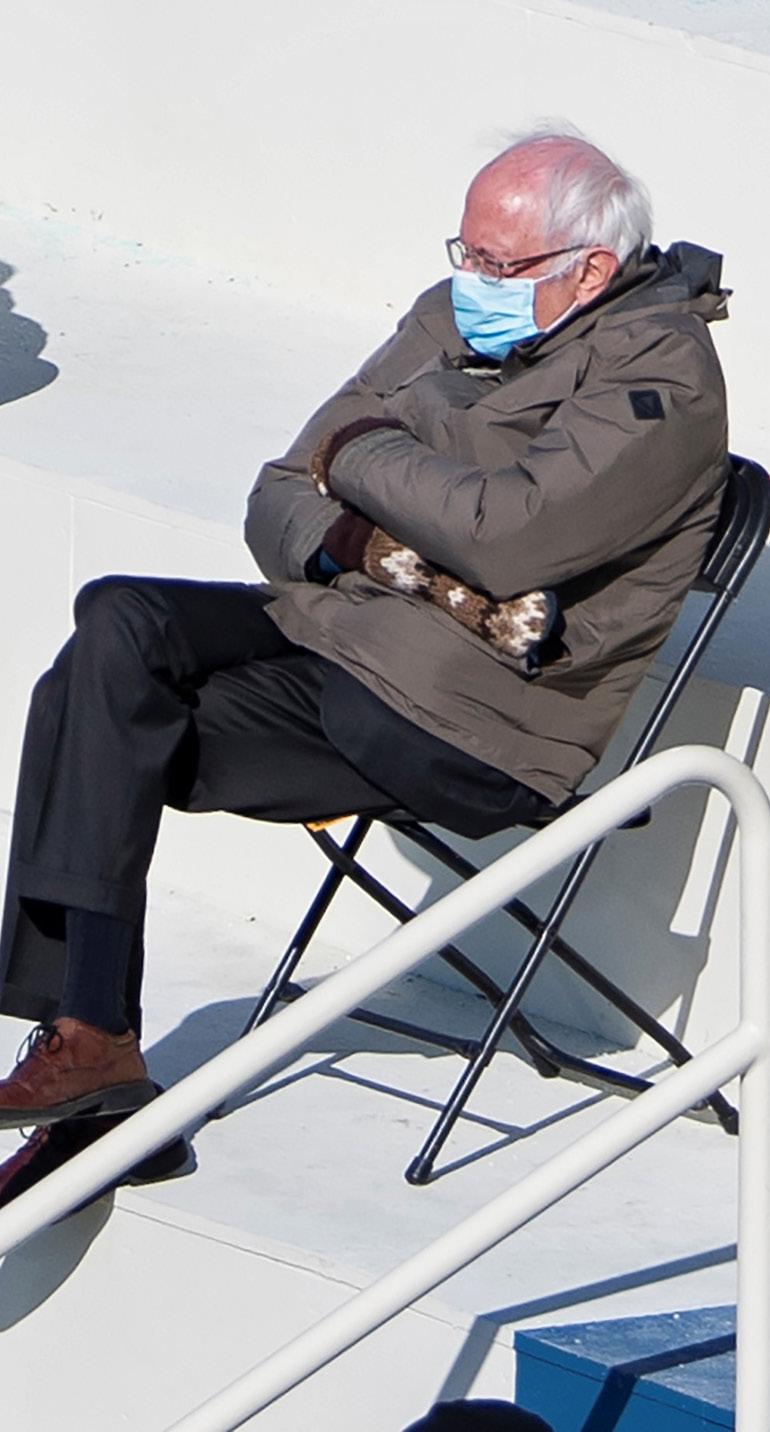
DISCLAIMER: The views, opinions, positions or strategies expressed by the authors and those providing comments are theirs alone, and do not necessarily reflect the views, opinions, or positions of StreetWise.

Dave Hamilton, Creative Director/Publisher dhamilton@streetwise.org
Suzanne Hanney, Editor-In-Chief suzannestreetwise@yahoo.com
Amanda Jones, Director of programs ajones@streetwise.org
Julie Youngquist, Executive director jyoungquist@streetwise.org
Ph: 773-334-6600
Office: 2009 S. State St., Chicago, IL, 60616
DONATE
StreetWise,
S. State St.,
make a donation to StreetWise, visit our website at www.streetwise.org/donate/ or cut out this form and mail it with your donation to
Inc., 2009
Chicago, IL 60616.
We appreciate your support!
Check #_________________Credit Card Type:______________________Name:_______
Visa, Mastercard, Discover or American Express
Account#:_____________________________________________________City:___________________________________State:_________________Zip:_______________________ Expiration Date:________________________________________________Phone #:_________________________________Email: StreetWiseChicago @StreetWise_CHI
MORE AT streetwise.org
My donation is for the amount of $________________________________Billing Information:
We accept:
Address:_____
LEARN
ARTS & ENTERTAINMENT RECOMMENDATIONS


Compiled by Emma Murphy
World-Class Exhibits!
Wrightwood 659 Chicago - Opening Exhibitions
“Patric McCoy: Take My Picture” features 50 striking photos of Black gay men taken on the streets of Chicago in the 1980s. “Kongkee: Warring States Cyberpunk” (pictured) traces the story of legendary Chinese poet Qu Yuan as his soul journeys from the ancient Chu Kingdom to an imagined 21st century, complete with projected comic book images and ancient Chinese artifacts. “Shahidul Alam: Singed But Not Burnt” includes portraits, landscapes, scenes of daily life, strife, and resistance in the Bangladesh area. These exhibitions are at Wrightwood 659 Chicago, 659 W. Wrightwood, April 14 - July 15. Tickets are $15 with access to all three and available for Thursdays, Fridays, or Saturdays at wrightwood659.org
A Live Tribute!
Holocaust Commemorative Series

Ellen V. & Philip L. Glass Holocaust Commemorative Series Commemoration: Yom HaShoah 2023 - "Voices of Children" is a collection of songs performed by Campanella Children’s Choir. The program features excerpts from memoirs of local Holocaust survivors that highlight what their lives were like as children. The commemoration will also include a candle-lighting ceremony and memorial prayers led by North Suburban Synagogue Beth El’s Hazzan Jacob Sandler. This event at the Illinois Holocaust Museum, 9603 Woods Drive, Skokie, is free and open to the public, and offered in-person and online at 2:30 p.m. April 16 with advanced registration at ilholocaustmuseum.org
A Collection of New Works!
American Ballet Theater

The world renowned American Ballet Theatre company returns to Chicago for three performances. Two works will have Chicago premieres: Christopher Rudd’s “Touché” and Jessica Lang’s “ZigZag,” in addition to two classics: Alexei Ratmansky’s “Songs of Bukovina” and Clark Tippet’s “Some Assembly Required.” Following the show on April 15, ABT and the Auditorium Theatre will host the first-ever “Chicago ABT Pride Night Celebration.” Peformances will be at 7:30 p.m. April 14 and 15 and 2 p.m April 16 at the Auditorium Theatre, 50 E. Ida B. Wells Drive. Tickets are $40+ at auditoriumtheatre.org/events-details/american-ballet-theatre
Spirituality in Song: Mexican Choirbooks of the Newberry Library
A History of Song!
This free event includes an in-depth look at the Newberry’s collection of choir books from colonial Mexico, which combined European forms with Indigenous traditions to produce new spiritual music. The roundtable discussion will examine the books and music from three diverse perspectives: the cultural context of the music, the books as art history, and researching and performing the music today. The event starts at 6 p.m. April 18 at the Newberry Library in the Ruggles Hall, 60 W. Walton St. This free event is in person and online with registration available at newberry.org/calendar/spirituality-in-song

ARTS &
ENTERTAINMENT
4
Some Enchanted Evening!

Broadway in Concert: ‘South Pacific’


Set on a South Pacific Island during WWII, this musical weaves the themes of romance, duty and prejudice to create a story that is funny and heartbreaking. New Philharmonic orchestra presents Broadway in Concert: “South Pacific” at the McAninch Arts Center, 425 Fawell Blvd., Glen Ellyn, at 7:30 p.m. April 15 and 3 p.m. April 16. A free 20-minute talkback with Maestro Muspratt and select members of the cast, chorus, and orchestra will take place in the hall immediately following each performance. Tickets are $67+ at atthemac.org/events/broadway-inconcert

Vaudeville Live!
Musical Mondays
The first of a three-part series from Chicago Cabaret Professionals, “Tin Pan Alley” is a performance focusing on rediscovering Irish and Jewish influences on the music of Vaudeville and Tin Pan Alley. This event is an evening of music from a largely forgotten era in American music, which was the driving force behind popular music in the first half of the 1900s. A cast of 13 singers perform lively songs written by Irish and Jewish musicians, performers, and theater artists. The show is at 7:30 p.m. April 17 at The Sanctuary at Epiphany Center for the Arts, 201 S. Ashland Ave. Tickets are $40+ at chicagocabaret.org

Narrated by a Horse?


Silent Film - ‘Kentucky Pride’
The Chicago Film Society is a film group dedicated to preserving movies from the past, including silent films. If you think you’ve seen everything, you haven’t seen a silent film narrated by a horse. In this film made in 1925, the director John Ford follows the horse after a racetrack accident and an original owner with a gambling problem. “Kentucky Pride” will be shown at 2 p.m. April 15 at the Music Box Theatre, 3733 N. Southport Ave., with live musical accompaniment by Jay Warren. Tickets are $11+ with more information at chicagofilmsociety.org
Keep it Green!
Clothing Swap
Chicago Fair Trade and the Chicago Conscious Closet Club are hosting a three-day clothing swap with expert stylists and menders, a knitting circle, and more. General admission is $10 for April 15 & 16 from noon - 5 p.m., and includes up to 10 swap items. Admission for April 14 from 5 - 9 p.m. is $35, and includes 10 items, snacks and alcoholic drinks, admission to the museum, re-entry for the other two days, and pay-what-you-can repairs. This event takes place at the Chicago Fair Trade Museum at NEWCITY Lincoln Park, 1457 N. Halsted St. Tickets at chicagofairtrade.org/ events/clothing-swap-and-knit

Film & Culture!
‘The Decline of Cinema’
“The Film & Culture” series kicks off with Episode 1: “The Decline of Cinema” featuring NY Times columnist Ross Douthat. He ponders movies as a communal experience and cultural art form, and explores why Hollywood no longer produces the caliber of movies that were commonplace just 20 years ago. The event includes a screening of the 1982 rom-com, “Tootsie” (pictured), that will be shown 4 times throughout the day on the historic main stage. The event begins at 5 p.m. April 12 at the Athenaeum Center, 2936 N. Southport Ave., with $35 tickets at athenaeumcenter.org/events/2023/the-film-culture-series
Sweat Amongst Beauty!
Immersive Mozart Yoga
Each workout is designed to challenge the body and inspire the mind, choreographed with the music, sounds, and animated imagery of the Classical period. People of all fitness levels can enroll in the 35-minute yoga classes led by certified instructors. Classes are April 1, 9, 15, 30, and May 6, 14, 20, and 28 at 9:30 a.m. at The Mozart Immersive exhibit, Lighthouse ArtSpace Chicago, 108 W. Germania Place. $50+ at mozartimmersive.com

www.streetwise.org 5
Patrick: We truly have madness, fellas. This year, unlike any I’ve witnessed, has been the year of the upsets. So here we are, talking together in the middle of the Sweet Sixteen, editing this column and going to the printer just ahead of the Final Four. We’re gonna come out with this issue just after the NCAA Championship game. Now that we’re nearing the conclusion of this awesomeness, team, what do y’all have?
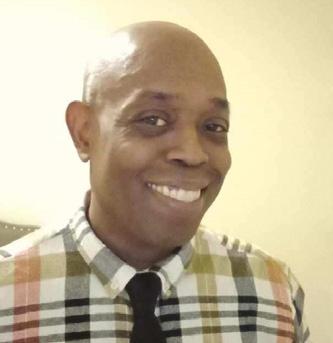
John: First off, although there have been many lower-seeded teams trumping higher-seeded teams, oddly, many of the games didn’t really seem like upsets. I mean, looking at the teams out on the floor versus their ranking, many games seemed to be evenly matched.
Donald: I agree with John about these games not really looking like upsets. No David and Goliaths.
Patrick: John, you have anything more?
John: Thank you, sir. As we’ve mentioned, this year’s tournament’s been the most wideopen I think I’ve ever seen. With the exception of the blue bloods, not to be confused with the TV drama Blue Bloods, the UCLA Bruins—
Patrick: Wait, hold up—please get my champ’s name out of your mouth, Mr. Hagan.
Russ: Thank you, John. Now,
Pat, you might as well have let it loose already!
Patrick: Straight bogus. Y’all so not right…but funny.
Donald: Kinda.
Russ: Glad you recognized.

Donald: (Laughter.) Go on, John.
John: Yeah, the teams most associated with “blue blood,” UCLA, Duke, North Carolina, Kansas, Kentucky, Indiana— some major ball clubs—these teams didn’t even make it to the Sweet Sixteen. Not one.

Donald: Shoot, and North Carolina didn’t even make the tournament.
Patrick: Yeah, that was a tough one for me. I thought they would have had the opportunity to win the tournament... I remember John talking about North Carolina perhaps not making the tournament—even
after being ranked as the top team in men’s college basketball before the season even began— but I never thought it would actually happen. North Carolina—UNC, Michael Jordan’s alma mater—didn’t make the tournament.
Russ: And they had a pretty good season last year with a lot of the same players still there.

John: Good point. For me, I’m loving that Miami (FL) and Princeton made this Sweet Sixteen. Princeton! And Miami (FL) made its first NCAA Final Four appearance.
Patrick: Out of the 16 teams, I had Alabama out of the South, Michigan State out of the East, Xavier out of the Midwest and UCLA out of the West. In the Elite Eight, I figured UCLA to beat Xavier, go on to the Final Four and take it all over ’Bama. Well, Michigan State was knocked out by Kansas State, ‘Bama was upset by San Diego State and Gonzaga surprised
UCLA. I am OK with not getting a single one right. But NO ONE IN THE WORLD got anything right with this year’s tournament. Out of the seven sheets in our office, one 1 person (!) got a single team in the Final Four. That is, San Diego State, Miami, Florida Atlantic and UConn; all but UConn were in their first Final Four. That’s the kind of tournament we want.
Donald: Sounds about right to me. I do want to mention the women’s NCAA tournament bracket is as competitive as the men’s. Two No. 1 seeds are already out.
Russ: Yeah, top-seed Stanford went down to 8-seed Ole Miss, and 9-seed Miami eliminated Indiana.
Donald: It’s wild out here. I believe we’re about to really see what’s going on.
Any comments or suggestions? Email pedwards@streetwise.org
SPORTS WISE
Rashanah Baldwin
Vendors Russell Adams, John Hagan and Donald Morris chat about the world of sports with Executive Assistant Patrick Edwards.
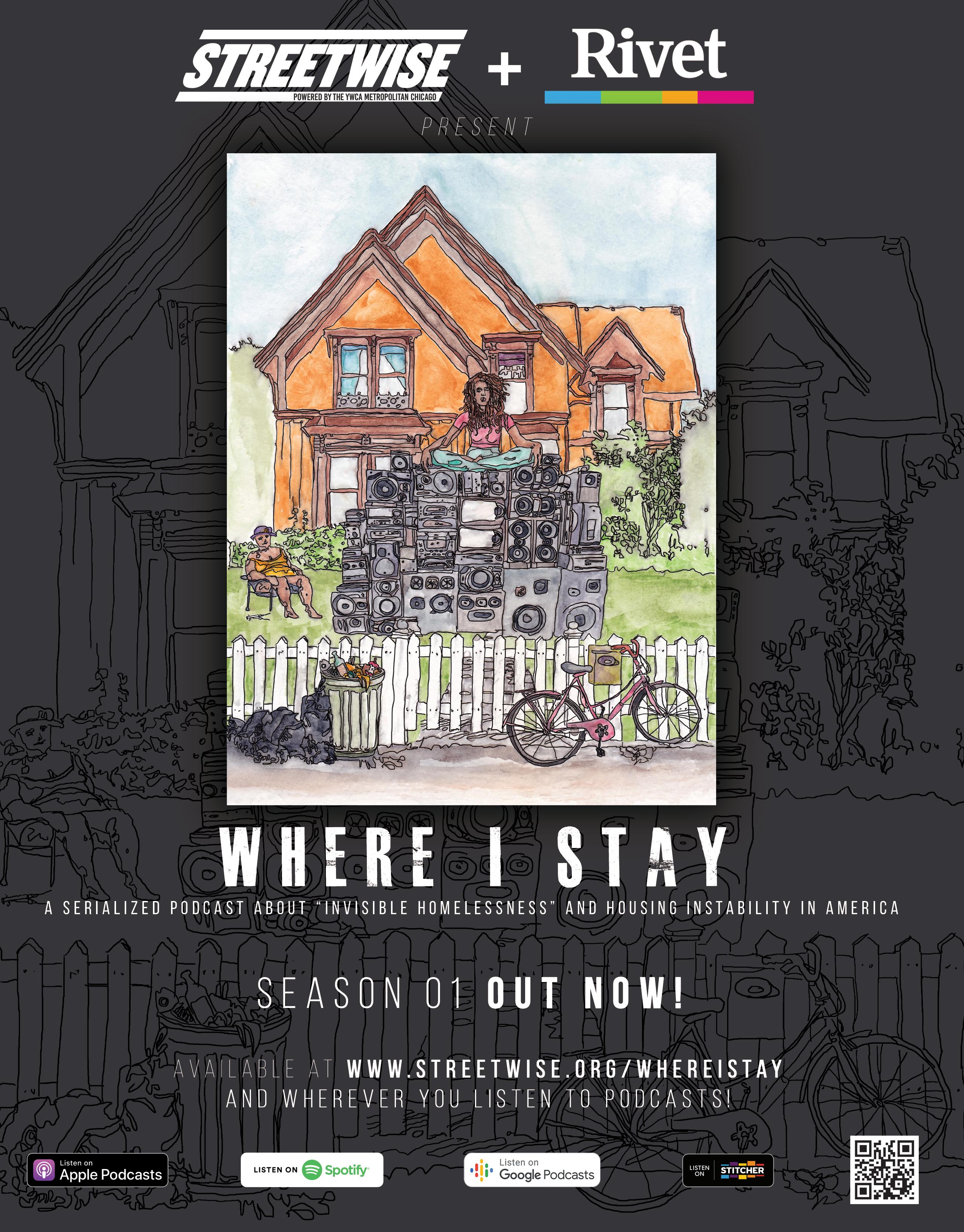
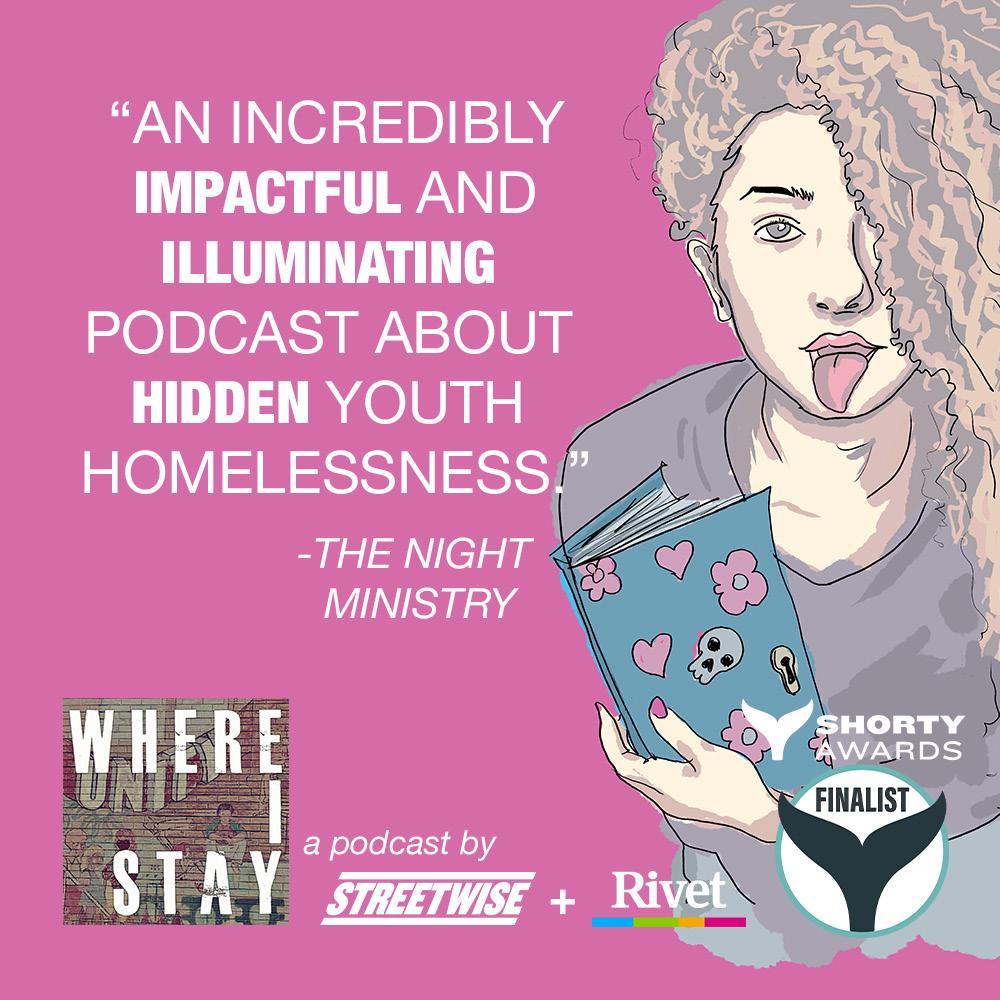
HOW CAPITALISM ATE
FORMER PROGRESSIVE US PRESIDENTIAL CANDIDATE BERNIE SANDERS ON INEQUALITY, BROKEN POLITICAL SYSTEMS AND HIS NEW BOOK
by Darren McGarvey
Bernie Sanders believes the capitalist game is up. In his new and rather furious book, “It’s OK to Be Angry About Capitalism,” he argues that until working-class people get organized in the face of corporate tyranny, they’ll exist for the sole purpose of exploitation by the rich and powerful.
The Vermont senator believes capitalism is eating itself and consuming democracy in the process. It’s a conviction Sanders holds deeply and couldn’t conceal beneath comforting centrist-dad platitudes, even if he wanted to.
“People remember the gilded ages where the rich were very rich and children were working in factories,” booms Sanders down the line, in that unmistakable Brooklynite baritone. “The fact is,” he assures me, “we have more income and wealth inequality than we did then.”
According to the World Economic Forum, since the onset of the pandemic, geopolitical turbulence and the resulting economic fallout, the richest 1% have hoovered up nearly twice as much of the newly generated wealth as the other 99% of humanity.
Unshackled by the constraints of a presidential campaign, Sanders is spoiling for a showdown with a U.S. oligarchy that would sooner see a capitalist sociopath like Trump back in the White House than a mentally sound socialist of his own variety anywhere near it.
“In the United States, we have a political system which is corrupt,” Sanders explains, “dominated by billionaires who can spend unlimited amounts of money trying to elect the candidates they’d like, and a media of which 90 percent of what the American people see and hear, and read, is owned by eight large media conglomerates.”
After two respectable presidential bids in 2016 and 2020, you get the impression the good people of Vermont – who Sanders has served in various capacities since 1981 – wouldn’t begrudge him a few more daytime naps. But for Sanders, the enemy never sleeps, so why should he?
In his mind, the situation is clear. He says: “We have three people in America owning more wealth than the bottom half of American society.
“We have to deal with the fact that we are seeing an unprecedented concentration of ownership.”
Ownership is what capitalism is all about, though. It’s from the seemingly inalienable right to acquire anything we want (if we can stump up the cash and someone is willing to sell) that capitalists believe all other human liberty springs. In principle, the right to property seems fairly harmless; in practice, it means a millionaire’s right to own multiple homes and leave them empty trumps the rights of homeless people to roofs over their heads.
When the rights of the rich to get richer come to supersede the rights of the poor to make ends meet, democracy naturally rigs itself in favor of the wealthy. But Sanders is keen to remind those currently numbed to the swindle that low pay is just the tip of the iceberg where corporate greed is concerned. He says: “I mean you got the tobacco industry, killed millions, knowingly, they knew what they were doing. You got drug companies, in this country, literally denying life-saving drugs to people.”
The Capitol Hill riots of 2021 rightly shocked the world. But truth be told, Washington, D.C. was overrun long ago by an insurgency of special interests invited through the front door by politicians. Sanders believes the solution lies in the American working class getting off its knees and wresting control from the puppeteers pulling the strings of government.
“We need sweeping changes in which democracy goes into the workplace where people have power over what they produce and how they produce it,” he says. “Where we get rid of big money in politics, so ordinary people can elect the leaders who are responding to their needs.”
Many like Sanders, who’ve been arguing for a more fundamental economic transition for decades, seemed hopeful for
8 COVER STORY
U.S. Sen. Bernie Sanders (I-VT) addresses protesters, who hold a rally in support of rail workers, near the U.S. Capitol in Washington, D.C., Dec. 13, 2022 (REUTERS/Mary F. Calvert).
ATE DEMOCRACY:

a time that the devastation caused by COVID would be a sufficient pretext for a "New Deal"-style settlement. But despite the vast assistance made available by the government during the crisis, more profound reform addressing the root-drivers of inequality failed to materialize. If we couldn’t rewire the system post-COVID, what chance does Sanders think there is now?
“Well, I think, real fundamental change never comes easily. And it’s going to require the building of a very, very strong grassroots movement. What encourages me is that, in the United States, a lot more people are prepared to think big and talk about structural changes to the system than was the case just a few years ago. What I’m also encouraged about is that, while there are deep political divisions within the United States – and everybody knows that – there are many economic issues that conservatives and progressives actually agree upon.”
Sanders is a rare political creature. One who enjoys an unusual level of popularity while being precisely what the average American today is inclined to passionately dislike: a politician. He’s practically part of the furniture in Washington DC, successfully trading on his outsider status despite counting President Joe Biden as a longtime friend.
Given Biden’s more moderate tendencies, which arguably fall short of facing down the real power in the States – the superrich – how does Sanders reconcile his own radicalism with his powerful pal’s centrist instincts?
“I’ve known Joe Biden for many, many years. Uh, and, you know, my views, my political views are very, very different from Biden’s and everybody understands that. What I respect about Biden is when he came in, what he was willing to do, which no president in modern history has been prepared to do, was to take a real look at the problems facing this country. And, as a result of that, we passed what we call The American Rescue Plan, which was a $1.9 trillion piece of legislation, which I think went a long way to getting us out of the economic crisis caused by COVID.”
Despite being older than some of the trees on Capitol Hill, at 81, Sanders remains sharper and vastly more informed on the forces shaping working people’s lives than a great many preening, careerist hacks currently being air-dropped in behind him.
Being quick on the draw also helps when you’re as radical as a mainstream presidential prospect is permitted to be without being gunned down in broad daylight.
He says, “In America, and around the world, there are a lot of people who are giving up on democracy. Because democracy, the current democratic structures, are not providing for them. In America, tens of millions of people can’t afford healthcare; they can’t afford childcare; they can’t afford to send their kids to college and they’re looking around and saying, you know, this government, this style of government, the structure of this government hasn’t done anything for me. It doesn’t work for me.”
When people grow tired of cookiecutter politicians reading off a script as the country falls down around them, a straight-shooter who speaks their mind becomes transfixing. Mass anger in the face of a system many feel is rotten to the core is why radical voices like Sanders gain traction – and why utter bellends like Donald Trump begin to appear vaguely plausible. Every populist explosion begins with a tiny spark of truth. The Trumpian assertion that Washington, D.C. was a swamp needing draining was not entirely baseless. Sanders knows it. “What Trump and his extreme right-wing allies have done is picked up on that,” he says. “So, I think that, when we talk about the economic needs of working people, it’s not just improving their quality of life and creating a more just society. It is also fighting to preserve democracy. Because people are not gonna want to participate in a system that does not work for them, that they understand is rigged.”
Sanders may as well be talking about the U.K. as well, where similar trends are reaching their logical conclusions in myriad scandals at the top of politics, while the right-wing press assures us the real problem is sociology students who want to cancel everything. The threat of so-called "identity politics" is often overstated for political effect, with the anti-woke agenda acting mainly as the right’s new go-to folk-devil. That said, the fight for ethnic minorities, LGBT+ people and other marginalized groups doesn’t always sit comfortably alongside traditional left-wing class politics either.
Today, the claim that social class remains the defining factor shaping outcomes in education, health, employment and earnings may invite a charge of "class reductionism" from the left’s identity-focused flank. This is the idea that class politics, with its focus on material conditions, often excludes the experiences of minorities because it is unconsciously centered around white working people’s interests and grievances.
It’s a valid, if politically inconvenient, criticism that must be handled delicately. Sanders, a lifelong anti-racist and equality campaigner, is sensitive to such concern, but isn’t shy to assert that economic justice and equality for minorities are, in his view, one and the same.
10
'HISTORICALLY, CONSERVATISM HAS UNDERSTOOD THAT DEMOCRACY AND THE RULE OF LAW IS WHAT THE UNITED STATES IS ABOUT'
He says: “At the end of the day, if we’re going to create the kind of just society which deals with economic inequalities, we have got to deal with class. But when we deal with class, when we talk about the need of healthcare as a human right, when we talk about the need to raise the minimum wage to a living wage, when we talk about the need to grow the trade union movement, when we talk about making public colleges and universities – to wish them free, in every instance – the major beneficiaries of those changes will be minority communities.”
Sanders thinks conservatism, generally, has lost its way – a belief shared by moderate Republicans he feels he can still do business with.
He states: “Conservatism, generally speaking, historically, has been about smaller government; more free enterprise; less regulation. That is what the Republican Party used to be about before it was captured by Trumpism. And I think there always can be a good debate about how much money we spend on this or that program, and different ways to go forward. But, historically, conservatism has understood that democracy and the rule of law is what the United States is about. And so that is very different from where Trump and his allies are coming from. They do not believe in democracy; they do not believe in the rule of law. We’ve got to combat that mentality very surely.”
Sanders understands that democracy is about more than voting every few years. The right to organize, to withdraw your labor and to protest are cornerstones of any healthy democratic system.
Sanders’ fame is such that in the twilight of his life it would be fairly easy to cash in and leave the world’s problems for some other generation to sort out. Unlike many of his peers, however, the veteran politician seems driven by a force greater than himself.

“It’s not easy, but we got to keep our eyes on the prize,” he concludes. “Gotta know where we want to go if we’re gonna ever get there.”
While “It’s OK to Be Angry About Capitalism” isn’t as sentimental as Adam Smith’s “The Wealth of Nations,” nor as onerously comprehensive as Marx’s “Das Kapital,” Sanders’ 320-page pamphlet is a damn sight more readable. It won’t trigger a revolution, but may just contain the populist spark that one day triggers an explosion of economic common sense.
Courtesy of the International Network of Street Papers / The Big Issue UK bigissue.com @BigIssue
www.streetwise.org 11
Darren McGarvey is a U.K.-based author, rapper and social commentator.
Senate Budget Committee Chairman U.S. Sen. Bernie Sanders (I-VT) gives an opening statement during a hearing to discuss President Biden's budget request for FY 2022, at the U.S. Capitol in Washington, D.C., U.S., June 8, 2021 (Greg Nash/Pool via REUTERS).
the univ. of california academic workers' strike and its meaning
 by Dr. Victor Devinatz
by Dr. Victor Devinatz
The 48,000 academic workers who struck the University of California (UC) system (Nov. 14 to Dec. 23, 2022) was the largest academic strike in U.S. history. The work stoppage was illustrative of three 21st century U.S. labor relations trends:
• the transition of industrial unions to general unions;
• a greater number of strikes occurring in service industries; and
• highly educated/highly skilled employees organizing unions and participating in strikes.
The 2022 U.C. academic workers’ strike also demonstrates that elementary strike principles, such as achieving striker solidarity while gaining support among other unions and throughout the community, which have historically resulted in unions in manufacturing and related industries achieving victories in their strikes, were crucial to this walkout’s success.
While June 1979 represented the U.S. manufacturing employment peak at 19.6 million, by June 2019, employment in manufacturing had plummeted 35% to 12.8 million. With a concomitant increase in service industry employment over the past 40 years, industrial unions, such as the United Auto Workers (UAW), that have traditionally organized in manufacturing and related industries, have transitioned to general unions. These general unions organize workers of all skill levels across all industries. Over the last few decades, the UAW, the labor organization that led the 2022 UC system academic workers’ strike, has organized Legal Aid lawyers, undergraduate residential assistants, and academic workers, for example.
During the U.S. strike apex between 1946 and 1975, most walkouts took place in manufacturing or related industries. However, more strikes in the 21st century have occurred in service industries with the rise in service industry union membership. Besides the 2022 UC system academic workers’ strike, the 2018-2019 wave of US teacher strikes is also indicative of a greater number of service industry strikes.
The 2022 UC system academic workers’ strike took place among highly educated/highly skilled workers, who the public often views as privileged employees. In the past, doctoral students serving as graduate teaching/research assistants, as well as postdoctoral scholars who experienced low wages and inadequate benefits, viewed their current positions as apprenticeships because of the tenure-track faculty appointments awaiting them. Due to the erosion of tenure-track positions, many of these employees have become precarious workers who lack job security, earn poor wages, while receiving inadequate benefits as they work in temporary positions in academia. Thus, these employees have turned to trade unions to advance their employment interests.
The nearly 50,000 graduate teaching assistants, academic researchers and postdoctoral scholars who teach most undergraduate courses in the UC system struck over low wages and unsatisfactory benefits when negotiations that had begun in Spring 2021 failed to yield a contract. For example, as reported in Politico, Galen Liang, a graduate student in Berkeley’s Math Department, stated that nearly half his $2,700 monthly stipend goes towards rent and utilities, which leaves him with little money to pay his remaining bills.
The strike successfully halted classes, postponed research, and disrupted grading in the weeks before final examinations. Faculty support was crucial to the walkout’s success, with professors cancelling classes and with at least 200 professors agreeing to withhold grades until the strike’s conclusion. Local unions of the Teamsters, which represent some 53,000 United Parcel Service employees, agreed that they would forgo the delivery of shipments to the UC campuses during the strike. Additionally, construction workers who were represented by the Operating Engineers Union, the International Brotherhood of Electrical Workers, and the Laborers’ Union halted work on the UC Berkeley campus in support of the strikers. The strike also received backing from U.S.
12 VOICE
OP-ED
OF THE STREETS
12
Sen. Bernie Sanders (I-VT) and U.S. Rep. Alexandria Ocasio-Cortez (D-NY) through Tweets. The Los Angeles Times published an editorial supportive of the academic workers prior to the strike. Additionally, though inconvenienced, most undergraduate students appeared to back the strikers’ demands.

The four bargaining units (across three UAW groups) settled at different times. A preliminary agreement was reached on November 29 for the 12,000 postdoctoral and academic researchers (UAW Local 5810) who remained on strike until the December 9 contract ratification. Major gains attained included a 20% to 23% salary increase, four additional weeks of paid parental and family leave, as well as childcare subsidies. The remaining 36,000 academic student workers and graduate teaching assistants (Student Researchers United – UAW and UAW Local 2865) obtained a tentative contract on December 16 with the UC system. Minimum pay increased from $23,250 to $34,000 for nine months of part-time employment, with improved childcare subsidies, as well as healthcare for dependents, among other contractual achievements.

The 2022 University of California academic workers’ strike demonstrates that organizing trade unions and conducting strikes can benefit highly educated whitecollar workers, which bodes well for trade unionism in a post-industrial society. In the 21st century’s third decade, we should expect to see more unionization and militancy among U.S. white-collar workers, such as technology industry workers, for example, as more of their jobs become increasingly precarious and proletarianized.
Dr. Victor G. Devinatz is Distinguished Professor of Management, specializing in labor relations, and was the Hobart and Marian Gardner Hinderliter Endowed Professor (2014-2015) at Illinois State University. He can be contacted at vgdevin@ilstu.edu.
THIS PAGE: Academic workers strike at UCLA for better pay and benefits for teaching assistants, postdoctoral scholars, graduate student researchers, tutors and fellows (Christina House photo). OPPOSITE PAGE: At the U.C. Berkeley campus (Jim Wilson photo).
home illinois is an historic investment to end homelessness
Gov. J.B. Pritzker’s FY 2024 proposed budget invests $350 million in state and federal funding to prevent and end homelessness. While some resources will come from existing funds, a new $200 million line item will rely on state General Revenue Funds, and the plan provides historically high levels of new investments using state funds to serve everyone in Illinois without a home.

Housing Action Illinois (HAI) said in a March 15 email blast that it helped organize the 50+ members of the Illinois Shelter Alliance to advocate for emergency shelter funding. The alliance particularly appreciates the FY24 budget’s $155 million to support unhoused populations seeking shelter and services. Included in this line item was $55 million to the Emergency and Transitional Housing Program, up from $10.38 million in last year’s budget.
The $55 million is very close to the $61.38 million funding level the shelter alliance sought to meet an immediate crisis: the depletion of pandemic relief funds. Last December, more than 220 housing advocacy organizations wrote Pritzker that the state was already 4,500 beds short of the 11,000 needed to accommodate everyone on a given night, according to a recent report to a state homelessness task force cited by Capitol News Illinois. Another 1,600 beds would be lost due to recovery money running out.
HAI celebrated its advocacy that made it into the governor’s $49.6 billion budget, such as $75 million in federal American Rescue Plan Act (ARPA) COVID recovery funds allocated to affordable housing programs:
• $40 million to support the development of new permanent supportive housing and emergency shelters
FROM THE STREETS
• $20 million for Illinois Housing Development Authority’s Opening Doors homebuyer program
• $7.24 million to support employee recruitment and retention for state-funded supportive housing and homeless service providers
• $5 million for the Here to Stay Community Land Trust, which provides permanent affordable home ownership opportunities in Logan Square, Avondale and Hermosa
• $3 million for state-designated cultural districts, including affordable housing preservation and resident anti-displacement
Pritzker’s office said in a Tweet that his proposed budget, released February 15, will provide homeless prevention to 5,000 more families; the capital to build 90 new units of permanent supportive housing; 460 new, non-congregate shelter units; new workforce development for homeless adults; rapid re-housing programs to provide short-term rental assistance; 500 new units of
scattered-site, permanent supportive housing. The proposal will also mean stronger outreach, shelter diversion support, services for people re-entering society after prison, and medical respite care, which is the short-term opportunity for homeless persons to recover in a safe setting from physical illness or injury.
State Rep. Will Guzzardi (D-Chicago) worked to secure these funds, according to HAI, working with state Rep. Lindsey LaPointe and state Sen. Cristina Pacione-Zayas, both Chicago Democrats, and state Sen. Ann Gillespie, (D-Arlington Heights).
Addressing racial inequality and injustice is foundational to the HOME Illinois plan, because Black people are eight times more likely to experience homelessness than white people, HAI noted on its website.
The State of Illinois has now committed more than $339 million in federal ARPA money it has received to create affordable housing and end homelessness.
 –Suzanne Hanney, from email and online sources
–Suzanne Hanney, from email and online sources
14
Gov. Pritzker
To solve the Sudoku puzzle, each row, column and box must contain the





March 29 - April 4 Puzzle Answers




How StreetWise Works
StreetWise exists to elevate marginalized voices and provide opportunities for individuals to earn an income and gain employment. Anyone who wants to work has the opportunity to move themselves out of crisis.
StreetWise provides “a hand up, not a handout.”
All vendors go through an orientation focusing on their rights and responsibilities as a StreetWise Magazine Vendor. Authorized vendors have badges with their name, picture and current year.

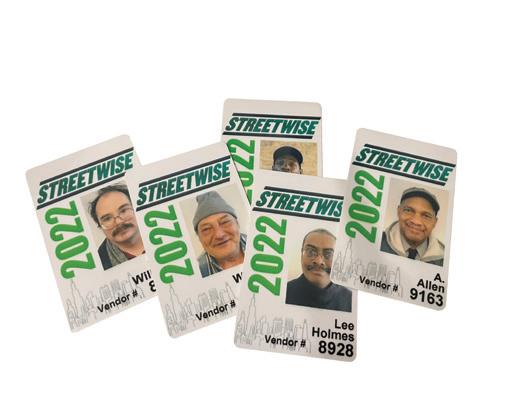
Vendors purchase the magazine for $1.15 and sell it for $3 plus tips. The vendor keeps all of their earnings.
Buy

When you buy the magazine, take the magazine, and read the magazine, you are supporting our microentrepreneurs earning an income with dignity.
New vendor orientation is every Tuesday and Thursday at 10:00 a.m. at 2009 S. State St. Find your nearest vendor at www.streetwise.org
Copyright ©2023 PuzzleJunction.com Sudoku Solution
Copyright ©2023 PuzzleJunction.com Solution ©2023 PuzzleJunction.com Solution 34 Deli breads 35 Spigot 38 Long-finned tuna 40 News bit 42 Sandpiper 43 Makes amends 46 Andean animals 48 Italian port 50 Fortified 51 Poker ploy 52 When doubled, a Pacific capital 53 Clothes presser 54 Curse 56 Hard to find 57 Harrow rival 58 Nuisance 59 Subway alternative 55 Get ready, for short 59 Billiards bounce 60 French girlfriend 61 Running behind 62 Plato’s plaza 63 Famed loch 64 Love god 65 Dog treats 66 Dutch city 67 Shipped Down 1 Burlesque bit 2 Off the mark 3 Military noshow 4 Bedding piece 5 Anaglyph 6 Little green man? 7 Quarries 8 Carries on 9 Skied 10 A few 11 Wowed 12 Ft. parts 14 Ravel classic 23 Martin or Koontz 24 Old PC platform 25 Hurricane, e.g. 26 Divided land 27 Gardening tool 28 Select 29 Spring sign 30 Sleep disturber 31 Heads (Fr.)
Streetwise 3/26/23 Crossword PuzzleJunction.com ©2023 PuzzleJunction.com 38 Halloween sound 41 Leg bone 42 Kooky 45 Sky lights 46 Supplies food 47 Eggnog additive 49 Pronged 51 Riot spray 52 Proficient 53 Old Chinese money 54 Bring up 55 Exhort 57 Low card 58 Author Levin Across 1 Mountain peaks 8 A sib 11 Children’s game 14 Dresses and hats, e.g. 15 Free, legally 17 Attractive force 18 Soft Italian cheese 19 Botanist Gray 20 Tactful 21 Knowledge 23 Showered 24 Positioned 27 Arrive 31 Electrify 32 Kings Peak locale 33 Irritate 34 Obese 35 Predatory fish 36 Gossip 39 Dejected 40 Feudal estate 42 Zilch 43 Kind of nut 44 Courtyards 46 Asian cuisine 48 Lighter fuel 50 Bring to bear 51 Adulthood 54 Groove 56 Marine rockclinger 57 Aardvark fare 61 Less cloudy 65 Sauce ingredient Down 1 Kind of wheel 2 Mar. follower 3 Health resort 4 Wise one 5 Eye part 6 Salad cheese 7 Cunning 8 Fairy tale figure 9 Gaelic 10 Goal-oriented activity 16 Abut 20 Short run 21 Persian Gulf kingdom 22 English cathedral city 23 Wild hog 24 Tel Aviv part 25 Summer mo. 26 Bake sale org. 28 Supermarket sections 29 Contract provision 30 Living fence, maybe
©PuzzleJunction.com
Crossword
the
Magazine, Take the Magazine
-or-
FREE CAREER COUNSELING AND MORE! TRANSITIONING MILITARY SKILLS INTO CIVILIAN CAREERS ARE YOU A VETERAN LOOKING FOR A JOB? Veterans Forward at National Able Network can help. CALL TODAY. 855.994.8300 GET PAID WHILE YOU TRAIN LEARN ABOUT LINKEDIN CREATE A NEW RESUME






























 by Dr. Victor Devinatz
by Dr. Victor Devinatz



 –Suzanne Hanney, from email and online sources
–Suzanne Hanney, from email and online sources













